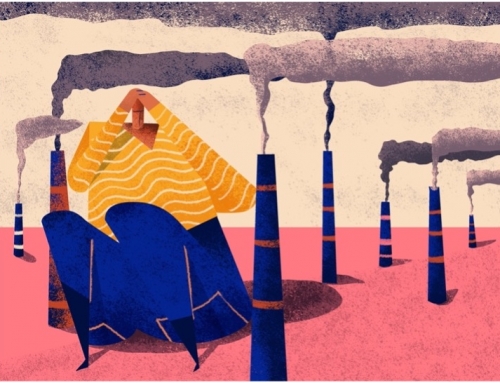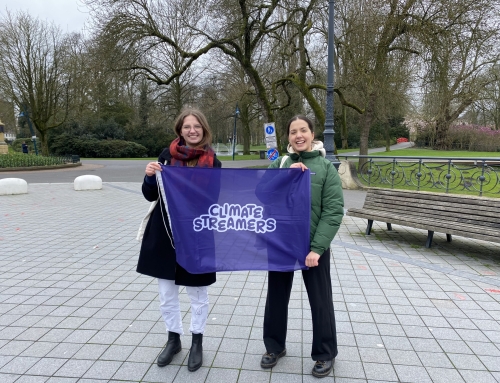After completing high school, I didn’t immediately come to The Netherlands to study what I am learning today. I began my university studies in Italy following my strong passion for Astronomy. My days were filled with books about scientific laws, the vast history of the universe, our solar system, and even the mysterious depths of black holes. I discovered this passion after being introduced to two brilliant minds: Margherita Hack and Stephen Hawking*.
Why is she talking about physics and the universe? You might ask.
I came to know these two personalities thanks to one element: storytelling. During high school, I came across Margherita Hack’s interviews on YouTube and started reading about her work, passion, and contribution to modern science. Soon after, I came across Stephen Hawking too. I was amazed by their personalities and their way of telling stories about the universe that I completely fell in love with the subject. They had inspired me enough to pursue a study in that direction and dedicate my life to that, or at least I thought. As we know by now, things took a different turn than I had expected, and my path led me elsewhere**.
The Power of Storytelling

My journey from studying the universe’s history to becoming a climate activist probably began with a video by NASA called “The Sound (& Visions) of Silence.” This stunning footage captures the beauty of our planet from space, reminding us of the beauty and fragility of our planet. I remember feeling immediately struck by the immensity and wonder of it all. Little did I know that this video would ignite a passion and start a fire within me.
Much like my interest in Astronomy, I’ve discovered and learned about many things thanks to the people around me. Their stories and passions have influenced me greatly, and it’s no different regarding climate change and my activism. Over the years, I have been inspired by those in my surroundings telling me stories about how they reduced waste, consumed less meat and, in general, started to take more conscious decisions. These stories, combined with my personal development, have been the perfect recipe for shaping the person I am today. Whether it’s my interest in physics and astronomy or my deep passion for the environment, I’ve realized that stories have an incredible power to shape our perspectives and growth. If I became as active as I am today in the fight against climate change, it would be primarily thanks to all the people I have encountered over the years. As I became more aware of the urgency of climate change, I turned to the stories of those already taking action to inspire me and show me options to take steps forward. I was moved by how individuals and communities were coming together to create positive change, and I began to see the impact that individual actions can have on a larger scale.
Through these stories, I could connect more personally because of the emotions they carried, and only then was I motivated to make changes in my life too. Emotions and affect have been found to impact people’s perceptions and actions and climate activism significantly. As Tobias Brosch (2021) notes, emotions can influence cognitive and motivational processes, and personal stories can inspire and evoke emotions. Stories have a great power in shaping our perspectives and driving us towards action. Thanks to these, we explore more profound levels and stimulate a sense of empathy, kindness, and compassion that nurture change and connection among people (Kelsey, 2020). And thanks to connections, we establish solid and resilient communities that can carry and stimulate change.
What if there was a quicker, simpler way to evoke these emotions?
As someone passionate about the topic, I’ve struggled to connect with people who didn’t share my enthusiasm or understanding of the issue. I naively assumed that if I could switch from becoming an astronomer to being a climate activist, anyone could, no matter their background. But I quickly realized that changing hearts and minds is not that simple. That’s why I’ve dedicated my time at Performatory to finding new approaches to encourage more people to join the fight against climate change. Throughout this journey, I have come to realize that it is a very complex challenge, and while there’s no one-size-fits-all solution, there are creative ways we can adopt to raise awareness and inspire people.
And that’s where gamification comes in.
Is Gamification the Key?
What is gamification exactly? Gamification can be identified as adding game-like elements to non-game contexts to make them more engaging and motivating (Douglas & Brauer, 2021). By tapping into our natural desires for competition, achievement, and socialization, gamification can encourage participation and create a sense of fun and excitement. In recent years, gamification has been increasingly applied to environmental and social issues, such as climate change, to engage and motivate people to take action (Dutton, 2023).
At Climate Streamers, we’ve taken a deep dive into gamification to see if it could enhance our approach to climate activism. Before making any decisions, we conducted extensive research and engaged with our target audience (ages 16-25) to better understand their needs regarding climate movements, awareness, and communication. Our findings revealed that most young people are already well-informed about climate issues and seek inspiration and actionable steps. However, as I discussed in my previous blog post, many feel overwhelmed and anxious about the future, which keeps them from taking those steps. They also expressed a desire for more playful and lighthearted ways to engage with this complex challenge. So, with these insights in mind, we turned to gamification as a potential solution. We explored successful examples, such as the card game “We’re Not Really Strangers” and the YouTube series “Spectrum” from creative company Jubilee. We held numerous concepting sessions to tailor our approach to our target group’s needs. After months of ideation, we decided to create a card game.
The Climate Streamers Card Game
The Climate Streamers Card Game is an excellent example of gamification being used to stimulate storytelling and create a safe, open space for individuals to share their personal experiences and perspectives on climate change. The game is designed to facilitate space and opportunities for everyone to speak. Doing that fosters better active listening and stronger connections among players.
The game includes 160 cards that enable players to explore various aspects of climate change from diverse angles and themes. The game’s flexibility allows it to generate different conversations and adapt to each group’s needs and preferences, making it a sustainable option for different-sized groups, from couples to larger gatherings. The game is story-based, meaning that the group decides the direction and shape of the game, regardless of their knowledge, involvement, or interest in the topic.
The Climate Streamers Card Game has now been bought and used by different people and organizations, who also came back to us with feedback. From what we have seen and experienced, the game really helps people to direct their thoughts while being open to other perspectives and input, leading to very diverse playing sessions. For us, this was very important to maintain as we want to show the complexity of climate change and challenge people to think of the interconnectedness with many other topics, such as human rights and access to education (i.e.). Moreover, the diversity of categories of cards, such as questions, sentences, or jokers, makes it lighthearted and fun for them to talk about it.
“An excellent game with interesting questions that make you think another way”.
Customer, Anonymous
Although gamification is certainly not the ultimate solution to climate change, I believe it is essential to elaborate on alternative ways to connect with people and inspire behavioural change. I firmly believe that tapping into our emotions establishes more genuine, long-lasting connections. In our society, I sometimes find it hard to express my opinion because I fear being judged or misunderstood. However, having a tool such as the Climate Streamers Card Game that facilitates a conversational space allows me to feel more comfortable while keeping an open mind to other perspectives. I think it is often difficult to understand the other side of the medal in all sorts of situations. But if gamification can help us break down stigmas and barriers, and help us overcome our assumptions and ego, then we can focus on what really matters.
* Margherita Hack was an Italian astrophysicist known for her work in the study of stars, as well as for advocating for women in science. Stephen Hawking, a British physicist, made groundbreaking contributions to our understanding of black holes and the origins of the universe.
** Know more about my story and field of interest by reading my previous blogs.
References
Brosch, T. (2021). Affect and emotions as drivers of climate change perception and action: a review. Current Opinion in Behavioral Sciences, 42, 15–21. https://doi.org/10.1016/j.cobeha.2021.02.001
Douglas, B. D., & Brauer, M. (2021). Gamification to prevent climate change: a review of games and apps for sustainability. Current Opinion in Psychology, 42, 89–94. https://doi.org/10.1016/j.copsyc.2021.04.008
Kelsey, E. (2020). Hope Matters: Why Changing the Way We Think Is Critical to Solving the Environmental Crisis. Greystone Books.
Lack, B. (2022, December 16). Storytelling Will Save the Earth. WIRED UK. https://www.wired.co.uk/article/environment-climate-change-stories
Zoe Dutton (2023). Can board games teach us about the climate crisis? Game creators say yes. The Guardian. https://www.theguardian.com/environment/2023/jan/28/board-games-climate-crisis-daybreak





